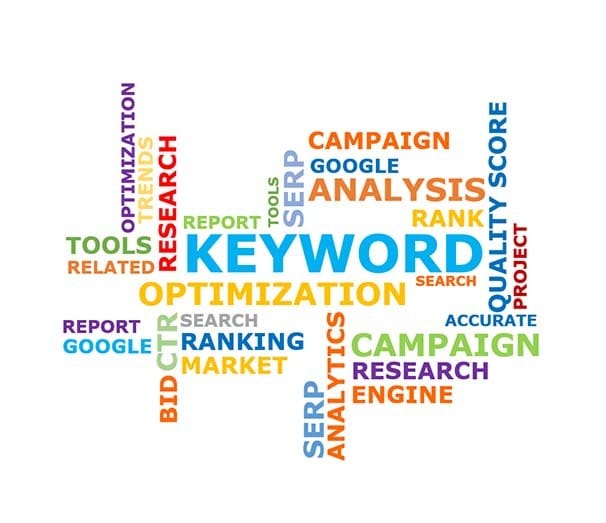At ConnorCedro.com, every strategy I build is tested on my own websites first. That’s how I know my SEO delivers real results before I ever use it for a client.
In today’s digital economy, SEO agencies compete on two things — data accuracy and delivery speed. The ability to uncover high-value keywords faster than competitors often determines who wins the client. But doing that research in-house for dozens of clients can become time-consuming and expensive.

That’s where white label keyword research comes in.
This growing service model allows agencies, freelancers, and marketing firms to outsource keyword research to specialists who work under their brand name. It’s the perfect balance between scalability, cost-efficiency, and client satisfaction — without giving up control or transparency.
This guide breaks down what white label keyword research is, how it works, why agencies use it, and how it can become a powerful part of your SEO offering.
What Is White Label Keyword Research?
White label keyword research is when a third-party SEO provider performs keyword research, analysis, clustering, and reporting for another agency — but the final deliverables are branded as if the agency did the work.
In other words, you sell white label SEO services under your own brand while an expert team handles the technical tasks behind the scenes. This model allows digital marketing agencies and SEO agencies to scale faster, serve more clients, and maintain consistent quality without adding internal overhead.
For example:
A Florida-based agency might manage multiple local SEO campaigns for small businesses. Instead of spending hours generating keyword lists and analyzing data from Google Analytics or Google Search Console, they partner with a white label platform or white label SEO provider. The provider compiles detailed SEO reports showing search volume, keyword intent, and ranking potential — all fully formatted with the agency’s white label branding, logo, and colors.
The agency then sends a professional client report as a branded PDF report, often delivered automatically through white label SEO tools or white label SEO software with report scheduling features. Many modern white label reporting tools include white labelled dashboards and custom domain access, letting agencies maintain credibility and transparency with clients.
It’s a seamless, scalable system that helps agencies grow efficiently while offering premium research and reporting under their own trusted name.
Why Keyword Research Matters More Than Ever
Search behavior changes constantly. The keywords that worked last year may not drive results today. As Google introduces AI overviews and semantic search improvements, agencies need deeper insights into how users search, not just what they type.
Keyword research forms the foundation of every SEO strategy. It tells you:
What your audience is looking for.
How competitive each term is.
Where the best opportunities lie for quick wins and long-term growth.
Without accurate keyword data, content strategies fall apart. That’s why agencies across the world are turning to white label SEO tools and partners who specialize in continuous keyword monitoring, topic clustering, and intent mapping.
How White Label Keyword Research Works
The process is straightforward but incredibly effective. Here’s how it typically unfolds:
1. Agency Defines the Goal
You tell the provider what your client needs — local SEO, ecommerce keywords, national campaigns, or niche B2B research.
2. Provider Conducts Deep Research
The white label team uses professional-grade SEO tools like Ahrefs, SEMrush, or Ubersuggest to identify keyword groups, related phrases, and search intent data. They may also include long-tail opportunities, question-based keywords, and content gap analysis.
3. Data Gets Filtered and Prioritized
The raw list is refined based on search volume, keyword difficulty, and user intent. For example, they’ll identify transactional vs. informational keywords to guide your content strategy.
4. Custom Report Is Created
The provider formats everything into a professional report — often including charts, topic clusters, and ranking potential. The document is branded with your agency’s logo and colors.
5. Agency Delivers to Client
You send the report to your client as part of your ongoing SEO service. To them, it appears you completed all the research in-house.
This workflow saves hours each week and ensures consistency across all accounts.
Benefits of White Label Keyword Research
1. Scale Without Hiring
Hiring full-time SEO analysts can cost thousands per month. White label services let you expand your client load without adding payroll or training overhead.
2. Access to Expert Tools and Analysts
Top providers use premium keyword explorer and keyword generator platforms that smaller agencies may not afford. This means your clients benefit from enterprise-level research without extra cost.
3. Faster Turnaround Times
Dedicated teams specialize in keyword delivery. Reports that might take your team days can be returned within hours — ideal for fast-moving marketing agencies.
4. Consistent Quality Across Clients
Every report follows a standardized process, giving your clients professional, consistent results each month.
5. White Labeled Branding
Reports include your agency’s logo, color palette, and formatting. Clients see seamless quality and trust your brand more.
6. Focus on Strategy, Not Research
Instead of digging through spreadsheets, your team can focus on conversion rate optimization, on-page content, and client communication.
7. Increase Profit Margins
You control pricing. If a white label report costs $100 and you charge your client $400 for a keyword strategy, your agency earns $300 in margin with zero extra labor.
If you’re looking to understand how the best agencies deliver real, scalable results, explore Best Search Engine Optimization Company: A Complete Guide. This post walks through what sets top SEO firms apart, how they structure campaigns for growth, and how to find the right partner for your business. It’s a valuable resource for entrepreneurs and marketers who want to build a sustainable online presence and drive consistent long-term success.

What’s Included in a White Label Keyword Report
A high-quality keyword research report goes beyond a list of terms. It’s a strategic roadmap that helps content writers, web developers, and SEO managers align around the same data.
Here’s what a typical white label keyword research deliverable includes:
Primary keyword list: Core focus terms for each topic or service page.
Secondary keywords: Related variations that support main terms.
Long-tail keywords: Low-competition phrases that drive targeted traffic.
Search volume and keyword difficulty: Metrics that guide priorities.
Search intent mapping: Understanding whether users want information, products, or services.
Content ideas: Suggestions for blogs, landing pages, and FAQs.
Competitor analysis: Comparison of ranking keywords from top competitors.
Topic clusters: Keyword groups organized for SEO silos and internal linking.
Localization data: Insights for geo-specific keywords like “best dentist in Miami” or “roof repair Tampa FL.”
Agencies can request reports tailored to each campaign — whether local, national, or global.
White Label vs. In-House Keyword Research
AspectWhite Label Keyword ResearchIn-House ResearchSpeedDelivered in hours or daysDepends on staff availabilityCostPay-per-projectOngoing salary and toolsScalabilityUnlimited with external supportLimited by internal bandwidthToolsAccess to enterprise dataDepends on budgetExpertiseSpecialists focused on researchGeneralists balancing tasksBrandingFully white labeledFully branded internally
While in-house work offers control, most marketing agencies find white labeling more efficient for growth.
Why Agencies Use White Label Keyword Research
To expand service offerings – Adding keyword research allows content or PPC agencies to deliver SEO packages without hiring analysts.
To maintain consistent quality – When managing multiple clients, white label services ensure no project slips in quality or delivery.
To handle seasonal demand – During campaign surges, outsourcing keeps turnaround times short.
To improve ROI – Lower labor costs mean higher margins, especially for recurring contracts.
To gain expert insights – Providers specialize in trends, intent shifts, and search engine behavior across industries.
The result: more clients served, better outcomes delivered, and less operational stress.
How White Label Keyword Research Supports Other Services
SEO Campaigns
Keyword research informs everything from on-page optimization to blog creation. With white label reports, you can launch results-driven campaigns faster and more accurately.
PPC Campaigns
The same keywords power Google Ads and search campaigns. Providers often include CPC data, helping you target profitable terms for paid media.
Content Marketing
Writers use keyword data to build articles and landing page content that rank. White label reports simplify collaboration between departments.
Link Building
Knowing which pages to target and what anchor text to use improves backlink quality. Keyword mapping helps prioritize outreach.
Understanding audience language aids social media marketing and paid social targeting. Consistent keyword use strengthens brand positioning across channels.
What to Look for in a White Label Keyword Research Provider
Choosing the right partner matters. Here’s what to evaluate before outsourcing:
Data Sources – Ensure they use reliable SEO tools with accurate search volume and keyword difficulty metrics.
Customization Options – Reports should match your branding and preferred format.
Delivery Speed – Fast turnaround keeps clients happy.
Experience in Multiple Niches – A strong provider understands diverse industries from e-commerce to law firms.
Transparent Communication – Regular updates and revisions ensure accuracy.
Scalable Pricing – Look for flexible packages so you pay only for what you need.
Confidentiality Agreements – Non-disclosure protects your agency’s client list and reputation.
Reliable providers act as silent partners — invisible to your clients but vital to your success.
Common Mistakes Agencies Make
Even with a great provider, avoid these pitfalls to maximize results:
Skipping client intent analysis: Don’t rely only on high-volume terms; prioritize relevance.
Ignoring localization: Florida agencies, for example, should include city- and county-level keywords.
Failing to update reports: Search intent evolves — refresh keyword data quarterly.
Neglecting internal linking: Use keyword clusters to structure site architecture and improve ranking signals.
Overloading clients with data: Present only actionable insights that drive strategy.
Real-World Example: Florida Agency Growth with White Label SEO
A digital agency in Tampa wanted to scale its SEO division but lacked staff to handle data-heavy research. They partnered with a white label provider offering user friendly, results-driven keyword analysis.
Within three months, the agency reduced research time by 80%, improved conversion rates across landing pages, and doubled client satisfaction scores. Their clients received professional reports backed by in-depth competitor analysis — all branded under the agency’s name.
This model turned their small team into a scalable marketing machine capable of handling enterprise clients without hiring more employees.
The Future of White Label Keyword Research
As automation and AI evolve, keyword discovery will grow even more complex. Agencies that leverage driven approaches — combining data science with human insight — will lead the market.
Next-generation white label partners are already integrating:
AI keyword clustering to group semantic terms faster.
Predictive search modeling for future trends.
Voice search optimization insights for smart devices.
Zero-click analysis to adapt to evolving Google result formats.
The agencies that adapt now will dominate client retention and revenue in the coming decade.
Final Thoughts
White label keyword research isn’t just about outsourcing tasks — it’s about scaling smarter. It frees agencies from manual work while delivering enterprise-level insights that fuel long-term growth.
Whether you run a small local agency or a multi-state marketing firm, partnering with a white label SEO provider gives you more time to focus on creativity, strategy, and client relationships.
In an increasingly competitive digital world, the agencies that combine speed, accuracy, and branding will always stand out. White labeling makes that possible — quietly, efficiently, and profitably.
If your agency is ready to expand services, increase efficiency, and deliver more value under your own brand, it’s time to integrate white label keyword research into your workflow.
The future of SEO belongs to those who can scale — and this is how you do it.
Ready to grow your website traffic? Contact me to get your custom SEO strategy.
My 3-Step Process for SEO Success:
Site Audit – I analyze your website, industry, and competitors to uncover growth opportunities.
Action Plan – You’ll receive a clear, step-by-step strategy showing exactly how we’ll reach your goals.
Quote – I’ll provide transparent pricing and timelines so you know what to expect from day one.

Social Media Marketing